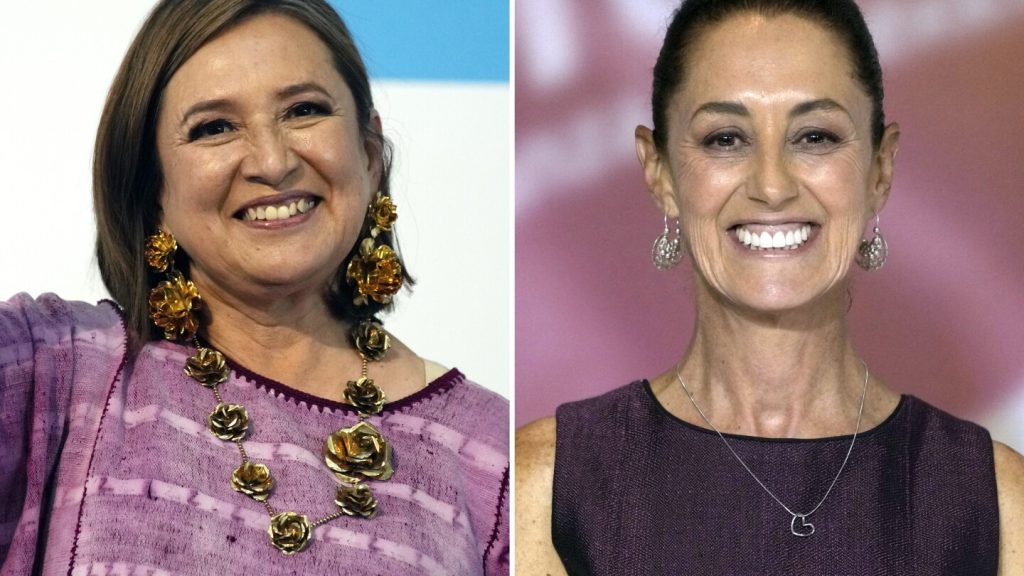As Mexico gears up for its upcoming presidential elections on June 2, the first debate between candidates took place with frontrunner Claudia Sheinbaum maintaining a comfortable lead. Sheinbaum, a former Mexico City Mayor representing the Morena party, faced attacks from ex-Senator Xóchitl Gálvez but remained composed throughout the debate. Jorge Álvarez Máynez, a candidate from the Citizen Movement party, positioned himself as an alternative to the other two candidates, emphasizing a break from traditional politics.
The debate covered a range of important issues including health, education, corruption, transparency, vulnerable groups, and violence against women. Sheinbaum’s lead in the polls, with a 20-point margin over Gálvez, positions her as a strong contender for the presidency. If either Sheinbaum or Gálvez wins, they would make history as the first female president of Mexico, a significant milestone in a country known for gender-based violence and a patriarchal culture.
Sheinbaum highlighted her alignment with the policies of outgoing President Andrés Manuel López Obrador, pledging to continue the transformation of Mexico. Despite Gálvez’s personal attacks and comparisons to López Obrador, Sheinbaum maintained her focus on her own platform and vision for the country. The candidates also discussed migration to the United States, advocating for the protection and respect of migrants passing through Mexico, in contrast to the security-centric approach promoted by the U.S. government.
While the debate touched on various issues, including the recent raid on Mexico’s Embassy by Ecuadorian police, there was limited discussion about the escalating levels of violence within Mexico itself. The upcoming debates are expected to delve deeper into security topics, addressing the pressing challenges of crime and the safety of local candidates. Sheinbaum’s connection to López Obrador remained a focal point in the debate, despite his absence as he is not eligible for reelection, demonstrating his enduring influence on Mexican politics.
As the presidential election draws closer, the dynamics between the leading candidates will continue to shape the political landscape in Mexico. Sheinbaum’s lead in the polls and her alignment with López Obrador’s policies position her as a frontrunner, while Gálvez seeks to differentiate herself as a viable alternative. With the historic possibility of the first female president in Mexico on the horizon, the outcome of the June 2 elections will have significant implications for the country’s future direction and leadership. The upcoming debates will provide an opportunity for voters to further evaluate the candidates’ platforms and visions for addressing the pressing challenges facing Mexico.


